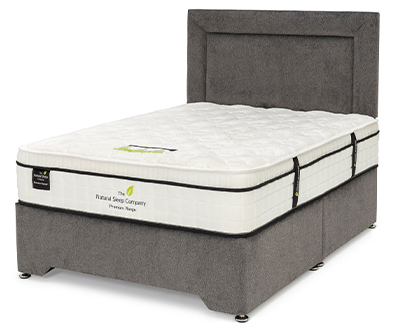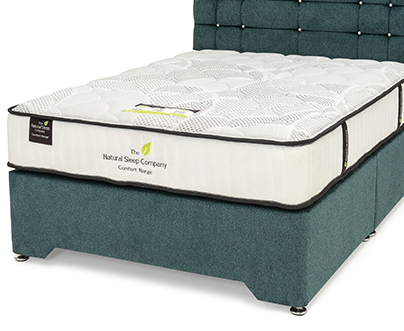Everyone, at some point in their life, has trouble sleeping. This may be caused by stress, illness or other factors, and is often only short term. When sleep problems become more regular and begin to affect your daily life, there is the possibility that you may be suffering from a sleep disorder. Sleep disorders are conditions that prevent restful, uninterrupted sleep, resulting in low energy, fatigue and sleepiness throughout the day. According to research, one in three people around the world have trouble sleeping.

The most common types of sleep disorders are:
1. Insomnia:
Insomnia is a condition which causes a person to have difficulty falling and staying asleep. Insomnia can be a short term or long term condition, in which it can last from a few days to months and even years. Adult females most commonly suffer from insomnia, although all ages can be affected. It is often caused by underlying conditions such as drugs and alcohol, stress/anxiety, hormone shifts and many other factors. Some symptoms include difficulty falling asleep, waking up during the night, feeling tired during the day, difficulty concentrating, tension headaches etc.
In the majority of cases, insomnia resolves itself, but when people suffer on a more long term basis, measures need to be taken to treat the condition.
Treatment:
- Improve sleeping conditions: Maintaining a regular sleep schedule, not over-sleeping but not under-sleeping, avoid coffee, maintain a comfortable sleep environment.
- Relaxation techniques: Yoga, meditation, muscle relaxation.
- Bedtime behaviours: Only go to bed when tired, avoid watching television, eating or reading in bed, get up early in the mornings, avoid lying in.
- Cognitive therapy.
- Consult your doctor if symptoms persist.
2. Sleep apnea:
Sleep apnea is one of the more dangerous sleep disorders, in which breathing pauses or stops temporarily during the night, caused by blockages of the upper airways. Each pause can last from a few seconds to minutes, and often leads to disrupted sleep during the night. Sleep apnea is a serious and potentially life-threatening disorder, including symptoms like loud snoring, gasping or choking during the night, waking up with shortness of breath throughout the night, feeling exhausted throughout the day etc.
Treatment:
Sleep apnea is a potentially life-threatening condition therefore it is essential to consult your doctor if any symptoms occur. Other simple treatments include:
- Losing weight.
- Elevating the upper half of the body using pillows, or for a more permanent solution, an adjustable electric bed.
- Sleeping on your side rather than on your back helps reduce the blockages to the airway.
- Consult your doctor, as tests to determine the severity of the condition and further treatment may be needed.
3. Restless legs syndrome:
Restless legs syndrome is a condition of the nervous system that causes uncomfortable sensations in the legs and sometimes arms, which is accompanied by an irresistible urge to move your legs or arms. This usually occurs during periods of rest, most commonly when lying down or sleeping, and is caused by tingling, aching or crawling sensations in the legs and arms. Restless legs syndrome can affect all ages but are the older generation suffer from more severe cases. Symptoms include uncomfortable feelings in the limbs, followed by the strong urge to move that most commonly occur at night, cramping of the legs during sleep.
Treatments:
- In mild cases, simple lifestyle changes, such as increased exercise, reduced caffeine, reduced alcohol intake etc.
- Massage the legs and effected areas to increase circulation and relax muscles.
- Taking a relaxing bath before bed or applying heat packs while in bed.
- Elevating the legs.
4. Narcolepsy:
Narcolepsy is a chronic neurological disorder that affects the part of the brain that regulates sleep. This is a very serious and disruptive sleep disorder. People who suffer from narcolepsy will get a sudden urge to sleep randomly throughout the day, often during periods of heightened emotion. If the urge is strong enough, people may fall asleep while talking, laughing, driving etc and can remain asleep for a few minutes or in some cases, over an hour or longer. Symptoms include the sudden strong urge to sleep, dreaming before you are in full sleep, feeling weak or losing control of your muscles during periods of heightened emotion, having intense dreams, feeling paralyzed or unable to move when waking etc.
Treatment:
There is no cure for narcolepsy, but there are certain measures that can be taken to minimise the impact the condition has on daily life.
- Maintain a healthy sleep pattern, get a good night’s sleep,
- Take regular naps during the day to reduce the risk of “sleep attacks”.
- Avoid stressful situations, as sleep attacks are more likely to occur at these times.
- Some medications can be prescribed to help improve symptoms; therefore your doctor should be consulted.
Some simple tips for a better night’s sleep:
- Regular sleep schedule: Going to sleep early and getting up early each day, including the weekends.
- Allow time for sleep: It is usually recommended to try to get at least seven to eight hours each night to feel alert and productive throughout the day.
- Sleep conditions: Ensure your mattress and pillows are comfortable, sleep in a dark cool room, eliminate any noises.
- Wind down before bed: Avoid watching television, using your computer or a smartphone before bed. The light on these screens emits stimulate your brain and can interfere with your body’s clock and make you more alert.
If you are looking for a new mattress to help you get a better night’s sleep, contact our sleep experts to find out what mattress would suit your needs.





